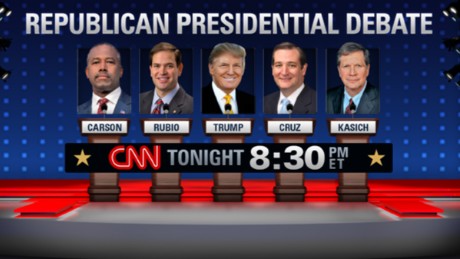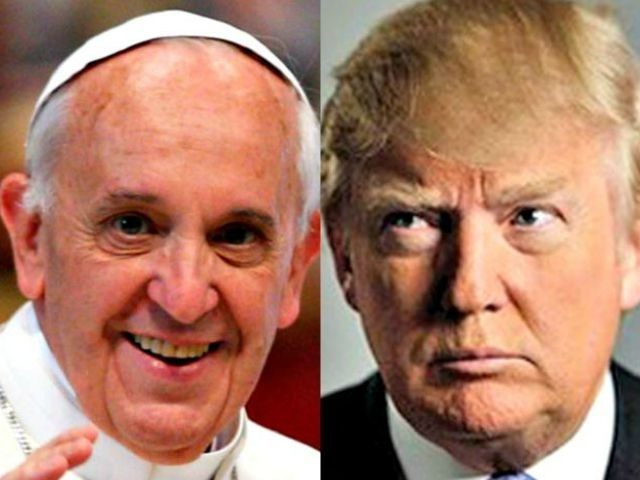
We have reached the latest nadir in the GOP race. Governor Chris Christie of New Jersey has endorsed The Donald for president. I say that it's only the latest low point because it seems that there seems to be no basement of the depths into which we are continually descending. I guess that the true, lowest point of our fortunes would be Trump's inauguration, but the situation would almost certainly worsen after that.
Do you remember how we all enjoyed Christie's roasting of Senator Rubio at the debate? We laughed heartily at the junior senator's misfortunes. The joke has now taken an unfortunate turn for the GOP establishment as Christie has added insult to injury by bombing out of the race, taking their last, best hope with him, and then endorsing their worst nightmare.
At their news conference on Friday, Trump and Christie took turns blasting Rubio for his "losing campaign." They painted him as a desperate candidate, trying his hardest to sustain the shape of his collapsing, mashed potato-volcano of a campaign. They expressed their mutual adoration and laughed at Rubio in equal measure.
This is a dramatic departure from Christie's previous rhetoric, in which he attempted to carry himself as the "tell it like it is" candidate. In January, Christie said of Trump, “Showtime is over. We are not electing an entertainer-in-chief. Showmanship is fun, but it is not the kind of leadership that will truly change America.”
Today, he said that Trump “will do exactly what needs to be done to make America a leader around the world again.” He was "proud" to endorse Trump, and thinks him "the best person to beat Hillary Clinton in November."
This sort of political flip-flopping is not, in my mind, the business of the once "no-nonsense candidate." Surely, he will profit from Trump's ascendance. Why else would he changing his stance so unabashedly? However, he says he has no plans to join the Trump administration. Christie said he plans to finish his term as governor, and then "go into private life and make money like Trump.”
Oh.
Christie's behavior begs the question: is he trying to burn the building down on his way out?
We can only wait and see.
How will Christie's endorsement affect the results of the upcoming Super Tuesday?
What is Christie's endgame?
Which are the most coveted remaining endorsements? Can they sway the popular support to anyone other than Trump?
http://www.nytimes.com/politics/first-draft/2016/02/26/chris-christie-endorses-donald-trump/
http://www.reuters.com/article/us-usa-election-trump-idUSKCN0VZ2I7
http://time.com/4239215/chris-christie-donald-trump-endorsement-twitter/



















